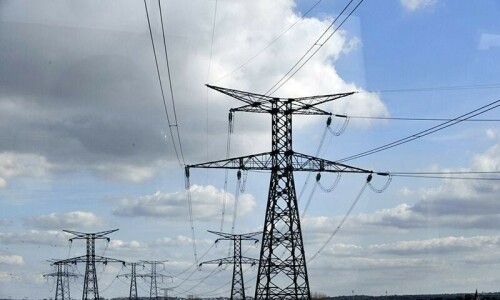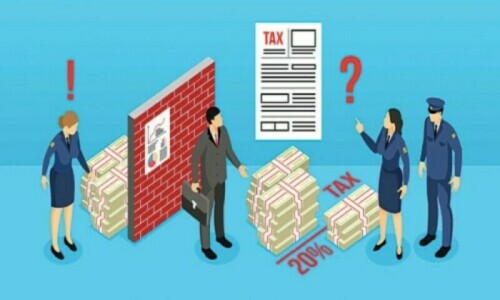Life for ordinary Pakistanis may continue to be challenging not only through this fiscal year but for the next two years as well due to the high levels of taxes that will remain in place and the additional services that will be brought into the tax net during these three years to meet the Internal Monetary Fund’s (IMF) demands.
The recently negotiated $7 billion IMF loan package, whose final approval by the IMF Executive Board is awaited, will be disbursed in 37 months. The terms of this loan require Pakistan’s provinces to switch over from the “positive” to “negative” list of services to levy sales tax.
Sindh, Punjab, KP and Balochistan have already started working on this plan for implementation in the next fiscal year beginning in July 2025, according to a Dawn report. Switching over from the positive to negative list means only a few services will enjoy exemption from sales tax, and the tax will be applicable to all other services. Currently, sales tax is collected only on some services and all other services are exempted.
It is not difficult to imagine how this will affect consumer inflation, which is fuelled constantly by frequent increases in petroleum prices due to a gradual increase in the collection of petroleum levies by the federal government. It is also not difficult to imagine how the imposition of sales tax on almost all services will affect the growth of small businesses that, together with large-scale firms, are already under stress due to rapidly rising gas and electricity prices.
In the last fiscal year, the government paid an estimated Rs1.3tr in capacity charges to the IPPs — an amount higher than what the government spent on defence in nine months of FY24
Energy product prices have risen as the federal government makes up for the losses it incurred in the past and is still incurring through payments of hundreds of billions of rupees to independent power producers (IPPs) on account of capacity charges. Capacity chargers refer to the amount Pakistan pays to IPPs for the electricity they can produce but are not producing because the government cannot (or doesn’t want to) add it to its national power grid for onward transmission and distribution.
In the last fiscal year, the government paid an estimated Rs1.3 trillion in capacity charges to the IPPs. For context, the amount is higher than what the government spent on the country’s defence in nine months of the last fiscal year — Rs 1.22tr, according to the latest official fiscal statistics.
Amidst this chaotic situation, successive governments routinely rely on domestic and foreign borrowings to fill in the holes in the fiscal account only to expand the total national debt stocks. Burgeoned stocks of debts lead to larger outflows of money in debt servicing or repayments of principal amounts with interest accrued. When this happens with domestic debts, the government raises even more domestic debt, mostly through commercial banks.
This gives our commercial banks a golden opportunity to park their funds in zero-risk government treasury bills and bonds, ignore credit requirements of the private sector and lend them pricier loans because of the government’s high demand for bank funds. The private sector, without sufficient and reasonably priced bank loans, does not go for expansion in business and even cuts production when that becomes necessary. That is why we see industrial growth tanking.
Between 2023-24, the government’s commercial bank borrowing totalled around Rs8.5tr, while overall spending on both domestic and external debt servicing was close to Rs5.52tr or more than 56.4pc of the total revenue — Rs9.78tr — generated during this period
During July-March 2023-24, the current hybrid regime had to spend Rs4.81tr on domestic debt servicing. Overall spending on both domestic and external debt servicing was close to Rs5.52tr or more than 56.4pc of the total revenue (Rs9.78tr) generated during this period.
Over the years, successive governments have continued amassing domestic debt, breaching the limits prescribed under fiscal responsibility law, while the parliament and the State Bank of Pakistan (SBP) looked the other way.
One excuse often offered was restricting the government from bank borrowings beyond a certain limit, which would make the government dysfunctional and bring all the state affairs to a halt. So, concessions were granted, and the state was given a free hand to make the vicious circle of “retire debts with more debts”.
This remained the order of the day primarily in the case of domestic debt because raising this debt, particularly from banks, required no ifs and buts. Now, the government’s total domestic debt and liabilities stand around Rs46.75tr (as of May 2024). Only a year ago, in May 2023, total domestic debt and liabilities were around Rs37.89tr, according to the SBP’s data.
Between July 1 2023, and June 28 2024, the government’s commercial bank borrowing totalled around Rs8.475tr, according to the SBP’s provisional data. Final data for the full fiscal year ending June 30, expected within a week or two, should make the domestic debt’s picture clearer.
Published in Dawn, The Business and Finance Weekly, July 22nd, 2024














































Dear visitor, the comments section is undergoing an overhaul and will return soon.